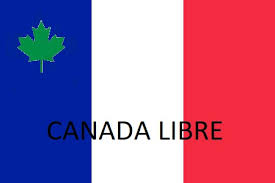FROM BIPOLAR TO... BIPOLAR AGAIN!
With all
the talk of supply chains being threatened and needing to be moved because of
geopolitical shifts, plus the growing protectionism in some places, plus trade
wars between rivals, many are wondering if economic globalization is passé,
a thing of the past, that fragmentation will replace globalization.
Is the
world becoming fragmented? Yes and no.
Yes, in
the sense that the political fractures have become more acute and more visible,
making the economic fractures more apparent since the main actors are fighting
economically instead of militarily. No, in the sense that the world order,
after the collapse of the Soviet Union, and the end of the Cold War, didn't
become unipolar, but multipolar, which is not the same thing.
A
unipolar world would have seen the population of the whole planet united around
common values, common political practices, a common culture, and, especially, a
common economic reality. In fact, the world became multipolar simply because
there were still around 200 sovereign countries, each with its own set of
interests, its own population, its own resources, its own political system, its
own history, and its own prospects.
Such a
diversity, in an age of instant communications and relatively fast
transportation, made globalization possible. Globalization may be seen as the
need to create, extend and consolidate economic networks among countries
sharing some level of similarities. The conditions that made it possible in the
first place are still there, even today.
The main
difference with the last decades is the slow emergence of China and the
gathering of allies that this new situation generates. To put it simply, the
world is becoming bipolar again, but this time between the United States of
America and the People's Republic of China.
A change
of guard is in the process of becoming reality, the leadership of the world
leaving the hands of the United States and passing in the hands of the Middle
Kingdom. In the last centuries, the title of Most Powerful Country of the
World has been held in turn by France (more or less in the XVIIIth
century), the United Kingdom (more or less in the XIXth), and the United States
(more or less in the XXth).
China is
likely to take and keep that coveted title in the current century, the first
non-Western country to do so in a long, long time. In itself, it is not a scary
subject, nor is it a joyful event, simply a bump on the road that we have
followed so far, as a species, in the sense that change is normal in human
history.
The main
question, the real question, is how violent or non-violent would prove to be
the coming transformation...
* * *
https://www.thedailystar.net/opinion/views/open-dialogue/news/our-world-becoming-economically-fragmented-3251391




Commentaires
Enregistrer un commentaire
Bonjour, tous les commentaires sont acceptés, dans la mesure où ils sont d'ordre professionnel. Insulteurs s'abstenir...